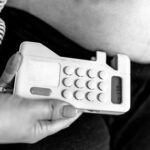Are you wondering when do symptoms of pregnancy start? Understanding the early signs of pregnancy is crucial for those trying to conceive or those who may have had unprotected sex. This article will delve into the various physical and emotional symptoms that women may experience in the early stages of pregnancy, as well as provide guidance on when to take a pregnancy test and seek medical advice.
The first signs of pregnancy can vary from woman to woman, but there are some common indicators to look out for. From changes in the body to mood swings and cravings, recognizing these symptoms can help individuals in understanding their potential pregnancy status. Additionally, this article will debunk common misconceptions and myths surrounding early signs of pregnancy, providing accurate information for those seeking answers.
Timing is key when it comes to taking a pregnancy test, and knowing when to seek medical advice is equally important. By being aware and prepared for early symptoms of pregnancy, individuals can approach this life-changing experience with knowledge and confidence. So let’s dive into the world of early signs of pregnancy and explore what to expect in the coming paragraphs.
The First Signs
Implantation Bleeding
Some women notice light spotting around 6-12 days after conception, which occurs when the fertilized egg attaches itself to the uterine lining. This light bleeding is usually pink or brown in color and is much lighter than a regular menstrual period.
Swollen or Tender Breasts
Changes in hormone levels during early pregnancy can cause the breasts to become swollen, sore, or tingly. Some women also notice that their nipples darken in color.
Frequent Urination
Another early sign of pregnancy is an increased need to urinate, which is due to the kidneys working harder to filter out waste products as well as the expanding uterus putting pressure on the bladder.
These initial symptoms can often be mistaken for premenstrual symptoms, so paying attention to your body and understanding possible early signs of pregnancy is important for those trying to conceive or hoping to avoid an unintended pregnancy. Consulting with a healthcare provider if you suspect you may be pregnant can help provide clarity and guidance on what steps to take next.
Physical Symptoms
During the early stages of pregnancy, a woman’s body undergoes various physical changes as it starts to prepare for the growth and development of the fetus. One of the most common physical symptoms of pregnancy is breast tenderness. This occurs as a result of hormonal changes that cause the breasts to become swollen, sore, and sensitive to touch. This tenderness may be similar to what women experience before menstruation, but it can be more pronounced in early pregnancy.
Another common physical symptom is fatigue. Many women report feeling unusually tired in the early weeks of pregnancy, sometimes even before they realize they are pregnant. This can be attributed to the hormonal changes and increased levels of progesterone in the body. Women may find themselves needing more sleep than usual or feeling exhausted despite getting enough rest.
Additionally, some women may experience nausea and vomiting, commonly referred to as morning sickness. These symptoms can occur at any time of day and are often one of the earliest signs of pregnancy. While it is called “morning sickness,” it can actually occur at any time during the day or night. It is important to note that not all women experience morning sickness, and its severity can vary from person to person.
Overall, it is important for women to pay attention to their bodies and understand that physical symptoms such as breast tenderness, fatigue, and nausea could be signs of pregnancy. Keeping track of these symptoms can help in determining when to take a pregnancy test if there is suspicion or desire for confirmation.
Emotional Symptoms
Many women report experiencing mood swings and cravings as early signs of pregnancy. These emotional symptoms can start as soon as a week after conception, making them some of the earliest signs to look out for. Pregnancy hormones, such as human chorionic gonadotropin (hCG) and progesterone, are the main culprits behind these emotional changes.
Mood swings can range from feeling irritable, anxious, or weepy without any apparent reason. On the other hand, many pregnant women also report sudden cravings for specific foods or aversions to certain smells and tastes. These symptoms can be quite intense during the first trimester but tend to improve in the second trimester for many women.
It is important to note that not all women will experience these emotional symptoms at the same time or with the same intensity. Every woman’s experience with pregnancy is unique, and some may not even notice these changes until later on in their pregnancy. However, if you suspect that you might be pregnant and start experiencing mood swings and unusual food cravings, it may be worth considering taking a pregnancy test to confirm your suspicions.
| Early Pregnancy Symptom | Timing |
|---|---|
| Mood swings | As early as one week after conception |
| Food cravings/aversions | Within the first few weeks of pregnancy |
When to Take a Pregnancy Test
Many women wonder when do symptoms of pregnancy start, and one of the key moments in determining whether or not you may be pregnant is knowing when to take a pregnancy test. The timing of taking a pregnancy test is crucial in obtaining accurate results.
While some tests claim to be able to detect pregnancy as early as 6 days before a missed period, it is generally recommended to wait until after you have missed your period for the most reliable results.
Taking a pregnancy test too early can result in an inaccurate reading, leading to unnecessary stress and confusion. Due to the different levels of hCG (Human Chorionic Gonadotropin) hormone present in each woman’s body and the time it takes for this hormone to accumulate enough for detection, waiting until after your missed period will give you the most accurate results.
If you suspect that you might be pregnant but receive a negative result on your first home pregnancy test, it is important to wait a few days and then retest if your period still doesn’t come. If you are experiencing other signs and symptoms of pregnancy even with a negative result, it may be time to consult with a healthcare professional for further testing or guidance.
Timing is key when it comes to taking a pregnancy test, so patience is essential in making sure that you get an accurate result.
Misconceptions and Myths
There are many misconceptions and myths surrounding the early signs of pregnancy. It is important to separate fact from fiction in order to have a clear understanding of what to expect. Here are some common beliefs about the symptoms of pregnancy that may not be entirely accurate:
1. Menstrual irregularities mean you can’t get pregnant: Many people believe that if they have irregular periods, they cannot become pregnant. While irregular periods can make it more challenging to track ovulation, it does not mean that pregnancy is impossible.
2. Morning sickness only happens in the morning: Contrary to popular belief, morning sickness can occur at any time of the day. Some individuals experience nausea and vomiting throughout the day, while others may only feel sick in the morning.
3. Pregnancy cravings are always for unusual foods: While some people do experience cravings for uncommon food combinations, others may simply have an increased appetite or desire for specific types of food.
It’s important to remember that every person’s experience with pregnancy symptoms can be different. It’s essential to consult with a healthcare professional if you have any concerns or questions about potential pregnancy symptoms.
Seeking Medical Advice
If you suspect that you may be pregnant, it’s important to seek medical advice as soon as possible. A doctor or healthcare professional can confirm your pregnancy and provide you with the necessary guidance and support. Here are some steps to take when you suspect pregnancy:
1. Schedule a prenatal appointment: Make an appointment with your healthcare provider to confirm your pregnancy. During this visit, the doctor will conduct a physical examination, perform a pregnancy test, and discuss your medical history.
2. Start prenatal care: Once your pregnancy is confirmed, it’s important to start prenatal care early. Prenatal care is essential for monitoring the health of both the mother and baby throughout the pregnancy.
3. Discuss any concerns or questions: Use this appointment as an opportunity to address any concerns or questions you may have about your pregnancy. Your healthcare provider can offer valuable information on nutrition, exercise, and what to expect during each trimester.
4. Follow-up appointments: Your doctor will schedule regular follow-up appointments to monitor the progress of your pregnancy. These appointments are crucial for ensuring a healthy and successful pregnancy.
Remember that seeking medical advice when you suspect pregnancy is an important step in taking care of yourself and your baby. Early prenatal care can help ensure a safe and healthy pregnancy for both mother and child.
Conclusion
In conclusion, being aware of the early signs and symptoms of pregnancy is crucial for women who are trying to conceive or those who may be at risk of unplanned pregnancy. Understanding the physical and emotional changes that can occur in the early stages can help individuals identify potential pregnancy sooner rather than later. From fatigue and breast tenderness to mood swings and food cravings, these signs can often be subtle but should not be overlooked.
It is important for women to know when to take a pregnancy test in order to obtain accurate results. Taking a test too early can lead to false negatives, while waiting too long may delay necessary prenatal care if the result is positive. By being informed about when do symptoms of pregnancy start, individuals can time their tests appropriately and seek medical advice promptly if needed.
It is also essential to address common misconceptions and myths about early pregnancy symptoms. By debunking these beliefs, individuals can understand what is truly indicative of pregnancy and avoid unnecessary anxiety or confusion. Overall, staying informed, seeking medical advice promptly if needed, and being mentally prepared for the possibility of pregnancy are important aspects of this stage in one’s life.
Frequently Asked Questions
How Soon Can You Start Getting Pregnancy Symptoms?
Pregnancy symptoms can start as early as a week after conception, but for most women, they don’t become noticeable until after a missed period. Early signs may include fatigue, nausea, breast tenderness, and frequent urination.
What Are Symptoms of Pregnancy at 1 Week?
At one week pregnant, it is unlikely that you will experience any noticeable physical symptoms of pregnancy. This is because at this early stage, the embryo has just implanted in the uterus and hormonal changes are only just beginning.
How Soon Can You Know if You Are Pregnant?
You can typically know if you are pregnant about one to two weeks after conception by taking a home pregnancy test. These tests detect the presence of human chorionic gonadotropin (hCG) hormone in your urine, which is produced when a fertilized egg attaches to the uterine lining.

Welcome to my fertility blog. This is a space where I will be sharing my experiences as I navigate through the world of fertility treatments, as well as provide information and resources about fertility and pregnancy.





